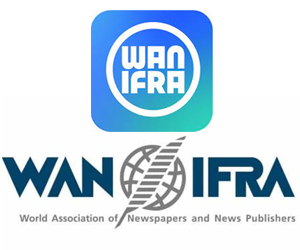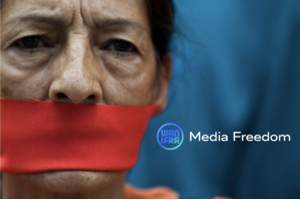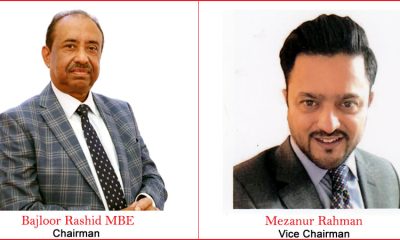Tech
Smart Bangladesh to take the Country to a Next Tech Hub in Asia
Published
2 years agoon
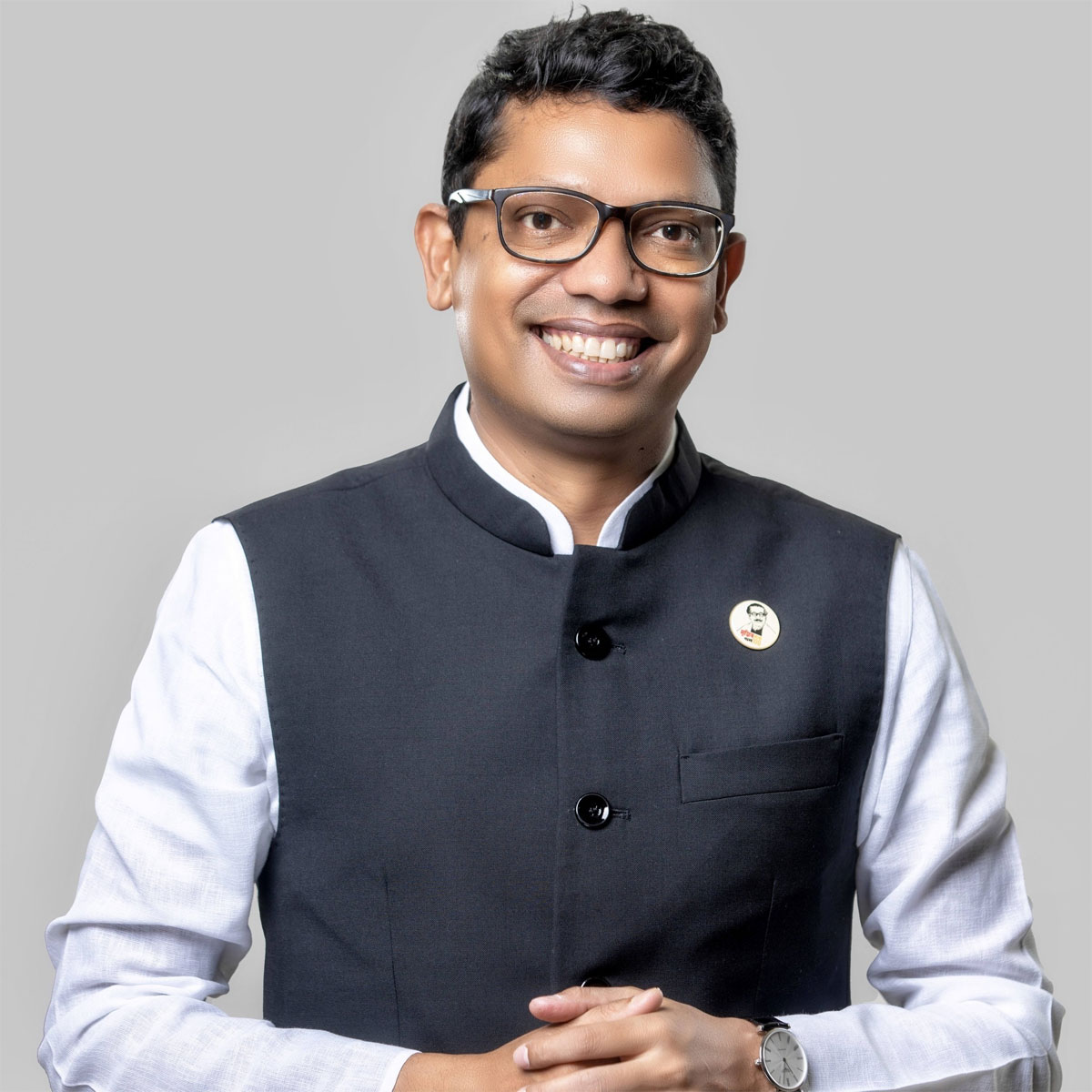
By Zunaid Ahmed Palak
In the last decade, Bangladesh has shown the world how revolutionary progress can be achieved through building a Digital Bangladesh vision as dreamt by our visionary leader Prime Minister Sheikh Hasina. It has now embarked on a task to build a Smart Bangladesh to take the country to a next tech hub in Asia.
Just a decade ago, Bangladesh had to import all the smartphones to meet the demands of the country’s growing smartphone users. Now, Samsung, one of the world’s biggest producers of smartphones, manufactures its latest high end devices in Bangladesh.
Since 2021, Samsung started manufacturing its Galaxy S21 Ultra 5G phones in Bangladeshi plants. In the US, this phone costs USD 1199.99 and if imported its cost would be more than BDT 166,000. Thanks to local assembling plants, Bangladeshi customers could purchase this phone at only BDT 119,000.
Not only Samsung, various companies such as Walton, Vivo, Oppo are also producing high-end smartphones in Bangladesh. In 2022, locally manufactured and assembled phones met more than 52 percent demand of smartphones.
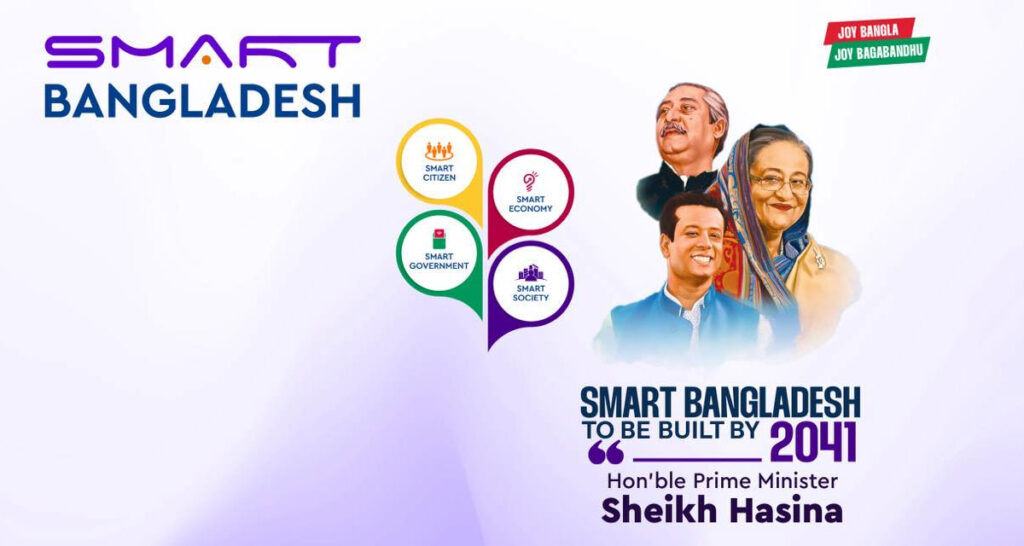
The secret behind such astounding transformation in the last few years is the current governments special focus on expanding ICT and heavy industries. Now the governments priority in this sector has been impeccably explained in its Smart Bangladesh vision.
Smart Bangladesh Vision 2041 as announced by Prime Minister Sheikh Hasina, Bangladesh is expected to achieve zero percent poverty, 100 percent high speed internet accessibility, 100 percent more than 5G smartphone penetration and 100 percent inclusive, circular and cashless economy and expansion of ICT based green industries by 2041. Besides, all the government services will be delivered electronically, government offices will be completely paperless and citizens will live in an absolutely inclusive, empowered and self-sufficient society.
The Bangladesh started journey towards Digital Bangladesh back in 2009 when the current ruling party Awami League came into power. There was no ICT ecosystem at that time. There were no government services that could be delivered electronically. Only 1 percent of the citizens had internet connection. There were only around 50,000 IT professionals in the entire country. And, export revenue from ICT based industry was only 26 million USD. But the fact of the matter is: under the prudent and dynamic leadership of Prime Minister Sheikh Hasina, the government has radically transformed the ICT ecosystem and built Digital Bangladesh over the last decade. Government has digitized 2 thousand services to citizens access to it. Out of 170 million people 130 million people have stable internet connection. Bangladesh currently earns over 1.4 billion USD annually by exporting ICT related services.
The Bangladesh government has implemented this massive transformation by establishing a safe and friendly investment ecosystem for the investors and entrepreneurs. The government has been providing attractive incentives for investors to expand the emerging ICT industry of the country. For instance, IT companies can enjoy 10 years of corporate tax exemption and if they invest in one of the Hi-tech parks established by the government, the duration of corporate tax exemption can be 12 years. Expatriate professionals working in Bangladesh’s ICT industry are exempted from income tax. Import duties for the investors or entrepreneurs for importing capital machineries and other assets are exempted.
Besides these, the investors will enjoy exemption from VAT, double taxation, stamp duty, registration fee (if they want to purchase land) and 100 percent profit repatriation facility. If the investors or entrepreneurs invest in Hi-tech parks, they will also enjoy bonded warehouse facilities.
Such lucrative incentives have already created an unprecedented acceleration in Bangladesh’s emerging ICT market. In the last five years, more than 2500 startups have been established in the country and around 200 ICT startups are entering the market every year.
There are currently more than 400 companies in Bangladesh who achieved funding by renowned international investors such as Soft Bank Group, Bill and Melinda Gates Foundation, Adventure Capital and many others.
Thanks to these investments, more than 2 million jobs have been created in Bangladesh’s ICT industry in the last decade. In fact, Bangladesh has reached a global milestone in expanding its ecommerce and digital financing. At present, Bangladesh boasts of 181 million users of mobile phones making it the 9th largest mobile market of the world.
There are more than 188 million subscribers of mobile financial services (MFS) who are doing 14 million transactions every day. Bangladesh’s MFS such as BKASH and Nagad (state owned) have earned many national and global recognitions for their innovative and committed customer services. Since 2011, MFS are growing in Bangladesh at an astounding 500 percent growth rate.
Like MFS, Bangladesh’s ecommerce market is also a hidden treasure for potential investors. Global players like Alibaba, Daraz and various national level startups have already created a 3 billion USD ecommerce market in the last five years. However, this is only 35 percent of the total market size and within the next two years the market can be expanded to address the demands of 80 percent of its consumers.
Bangladesh has also achieved a major breakthrough in expanding its digital device market. Even in the last decade, Bangladesh had to import almost all of the electronic products. However, nowadays Bangladesh has become an emerging exporter of electronic products manufactured in Bangladesh.
The country has created a 2.4 billion USD market of electronic devices and annual growth of the market is 29.3 percent. Walton, a Bangladeshi brand has been exporting home appliance electronics and heavy machineries for almost a decade. Products of globally renowned brands like Samsung and Sony are now being assembled in Bangladesh.
In the near future, Bangladesh is going to be a big player in the global semiconductor industry. Bangladeshi researchers in collaboration with their American counterparts have developed semiconductors which have the highest operational temperature of 300 degree celsius, more than double that of conventional semiconductors.
Bangladesh government has allocated 10 million USD to establish Nano Lab to conduct fundamental research on semiconductors in Bangladesh. Besides, four Bangladeshi companies are already producing electronic chips and exporting them to different countries as well. More than 1000 trained Bangladeshi engineers are working in these companies. The government is now giving 10 percent export incentive for electronic chip exporting companies. If the current rate of growth continues, It is expected that Bangladesh will create a 20 billion dollar semiconductor industry by 2041.
Such outstanding progress in the ICT industry has been possible due to Bangladesh governments remarkable attention on creating skilled manpower in the ICT sector.
The ICT division has been providing a wide range of ICT training to millions of youths, particularly women all over the country to become freelancers and skilled IT professionals. Many of these trained youths have later become successful entrepreneurs, freelancers and IT professionals.
Bangladeshi freelancers are earning 400 million USD annually through their skilled and cost-effective services. According to Oxford Internet Institute (OII) and World Bank reports Bangladesh’s position in the online labour forces is second. From 2010-2018, income growth of the IT professionals was around 10 percent, however, from 2019 to till now, the growth rate has increased up to 40 percent.
Utilization of these ready to deploy resources can only be possible if the government can attract foreign direct investments and young entrepreneurs in the country’s rapidly emerging ICT sector. And, Prime Minister Sheikh Hasina’s government is more than ready for them.
Our next goal is to develop a smart economy within next five years where we shall be able to establish a 100 percent cashless, circular economy. To achieve this goal, we would provide support to develop at least 5 unicorn startup companies (USD 1 billion company each). We have also planned to develop 50 unicorn startup companies by 2041. Our government will do everything possible to attract investors and entrepreneurs to invest in this sector and they will be the key players in realizing our dream of Smart Bangladesh.
Bangladesh has a massive pool of millions of skilled youths, all the necessary infrastructure and extremely conducive environment for young entrepreneurs and large scale investment as well. The initiatives taking by the present Government is the line with the Smart Bangladesh vision there is no doubt that Bangladesh is going to be the next tech hub in Asia and beyond.
The writer is Honble State Minister for ICT Division Zunaid Ahmed Palak. e-mail: me@palak.net.bd
You may like
-
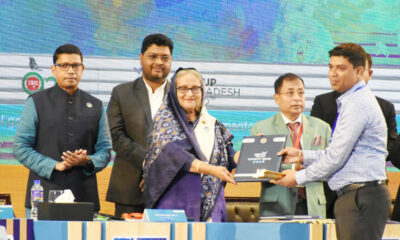

Mobarak Hossain gets Smart Bangladesh Award 2023
-
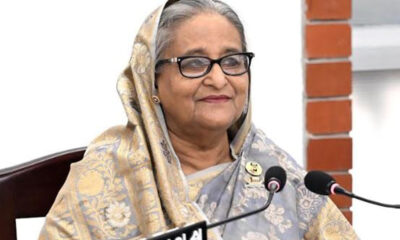

PM urges all parties to participate in national polls
-
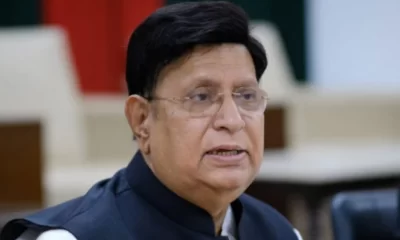

Momen: Regional stability, loans to feature Sheikh Hasina-Xi Jinping meeting
-
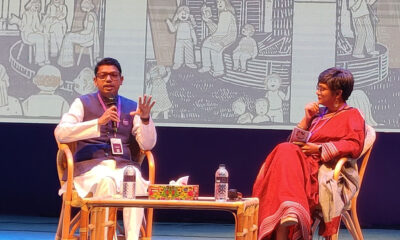

Bangladesh has turned into a technology-based economy: Palak
-
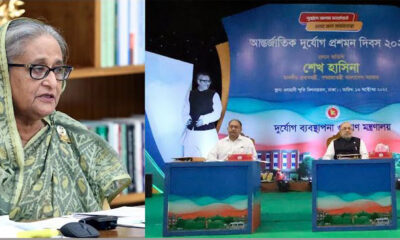

Be aware, so any irresponsible person doesn’t come to power: PM
-
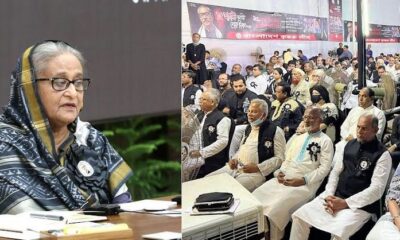

PM slams BNP for hurricane lamp movement
Tech
A10 Networks Expands its Cybersecurity Portfolio with Acquisition of ThreatX Protect
Published
4 months agoon
March 13, 2025
ThreatX Protect Addresses Critical Need to Protect Against Evolving Application and API Security Threats
To continue to help customers address the rapidly evolving cyber threat landscape, A10 Networks has acquired the assets and key personnel of ThreatX Protect expanding its cybersecurity portfolio with web application and API protection (WAAP). The acquisition is expected to be modestly accretive to A10’s earnings per share in 2025 and has closed.
Attacks against web applications and application programming interfaces (APIs) are on the rise and are a significant threat to enterprises. ThreatX Protect provides a unique WAAP solution using behavioral and risk profiling to help protect enterprises from evolving threats, including threats to AI applications, which can complement an AI firewall. Delivered as a software-as-a service solution, ThreatX Protect includes API protection, bot management and next-generation web application firewall.
“Expanding the A10 Defend security portfolio with ThreatX Protect gives our customers an additional tool in their strategy to protect against new and evolving threats,” said Dhrupad Trivedi, president and CEO, A10 Networks. “Our strategic focus is on helping enterprises secure their applications and networks from the growing number of threats today, as well as protecting the emerging AI use cases of the future. Adding WAAP to our solution set gives customers additional capabilities to help establish a strong security posture.”
“We are thrilled that A10 Networks has acquired certain assets of ThreatX, including the brand and the TX Protect WAAP solution to expand A10’s security portfolio,” said Gene Fay, CEO of ThreatX. “A10 has been a fantastic partner throughout this process, and we are confident that our customers and employees will thrive under their leadership.”
As a result of this transition, the remaining assets of ThreatX will be launched as Run Security with TX Prevent, the cutting-edge eBPF-based solution re-launched as RS Prevent.
ThreatX Protect supports A10’s strategy of helping customers deploy A10 security solutions in a hybrid approach to protect apps and APIs running anywhere – public cloud, private cloud, co- location facilities or on-premises. The A10 Defend portfolio of solutions provides DDoS protection, DDoS threat intelligence and web application, and now adds a full-featured WAAP solution all integrated into a single platform with end-to-end delivery and stronger security for mission-critical applications.
Specific terms of the transaction were not disclosed. The acquisition is consistent with A10’s stated strategy of expanding the Company’s security portfolio to grow in the enterprise market. The acquisition does not represent a material change to the Company’s 2025 financial outlook or long-term business model.
Tech
Rampant Corruption Plagues ICT Sector in 15 years : White Paper
Published
7 months agoon
December 3, 2024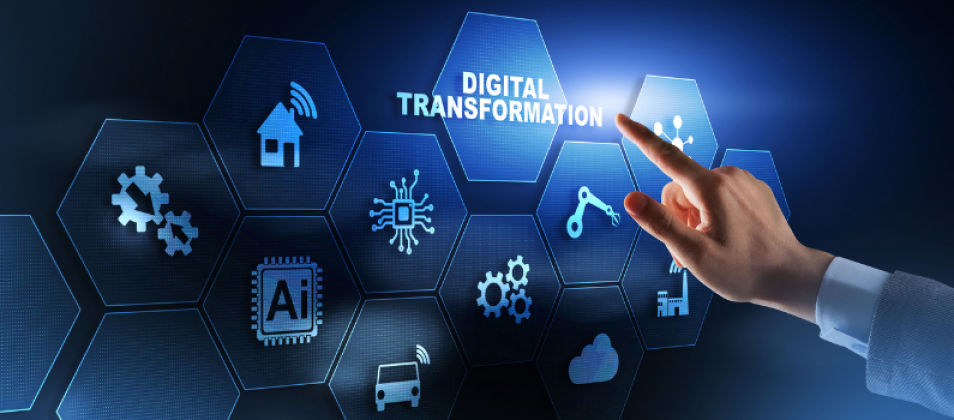
Highlights
- ICT sector plagued by corruption
- Hi-Tech parks fail to attract investors
- Lack of transparency in project implementation
- Misuse of funds to benefit preferred vendors
- Calls for robust project evaluations
The White Paper on the State of the Bangladesh Economy, submitted to the Chief Adviser today (1 December), identified the Information and Communication Technology (ICT) sector as one of the most affected by corruption.
“The review of the White Paper puts the banking sector on top of the most corruption-ravaged sectors, followed by physical infrastructure, and energy and power,” it reads.
ICT was also identified as one of the most corruption-affected sectors by its operational and technological novelty, it added.
The White Paper committee’s comment highlights years-long corruption allegations in the key sector the Awami League pledged to improve during the 2008 election for the sake of national progress.
And the story later frustrated the youth and technology experts due to huge waste of taxpayers’ money in improper projects. These lacked transparencies and were alleged to benefit people close to the then regime.
In the one and half decades of Sheikh Hasina’s ruling, the state spent nearly Tk29,000 crore to build “Digital Bangladesh” and later “Smart Bangladesh by 2041.”
Most of the funds were allocated to infrastructure projects, which still require justification from sector experts. For instance, Hi Tech parks outside major cities barely attracted investors.
Government-funded projects aimed at youth ICT training, women empowerment, and local app and game development, costing hundreds of crores of Taka, appear to have primarily benefited officials and their preferred vendors, reveals the gradually unfolding facts.
The interim government in August formed a committee to evaluate the ongoing projects already recommended to downsize them in lots of unjustified cases. It will also dig deeper to find the anomalies in the already finished projects.
In an example of how the government projects were being justified in questioned ways, the white paper mentioned a 2013-18 ICT Division project “Leveraging ICT for Growth, Employment, and Governance Projects” that had a 43% cost increase to Tk774 crore, from its original budget of Tk521.97 crore.
According to the White Paper, the large capacity-building initiative aimed to promote the IT sector and train 30,000 individuals for employment within it. The evaluation report from the Planning Ministry’s Implementation Monitoring and Evaluation Division showed strong satisfaction with the project’s success.
However, it overlooked the contributions of training institutions, colleges, and universities that also played a role in advancing the sector, the White Paper stated.
Additionally, the quality of the evaluation report was inadequate, as it failed to distinguish the marginal impacts of training 30,000 individuals on the entire IT sector.
This analytical weakness in assessing the project’s impacts has contributed to the continuation of various ICT and other projects that lack tangible benefits.
“It highlights the need for more robust evaluations to ensure that future initiatives are grounded in a clear understanding of their actual contributions to the sector,” said the White Paper.
Bangladesh lags behind many comparator countries in a number of technological indexes, despite the digital and smart nation narratives.
Tech
Corruption behind Tk 650bn investment in telecom, ICT sectors
Published
7 months agoon
December 3, 2024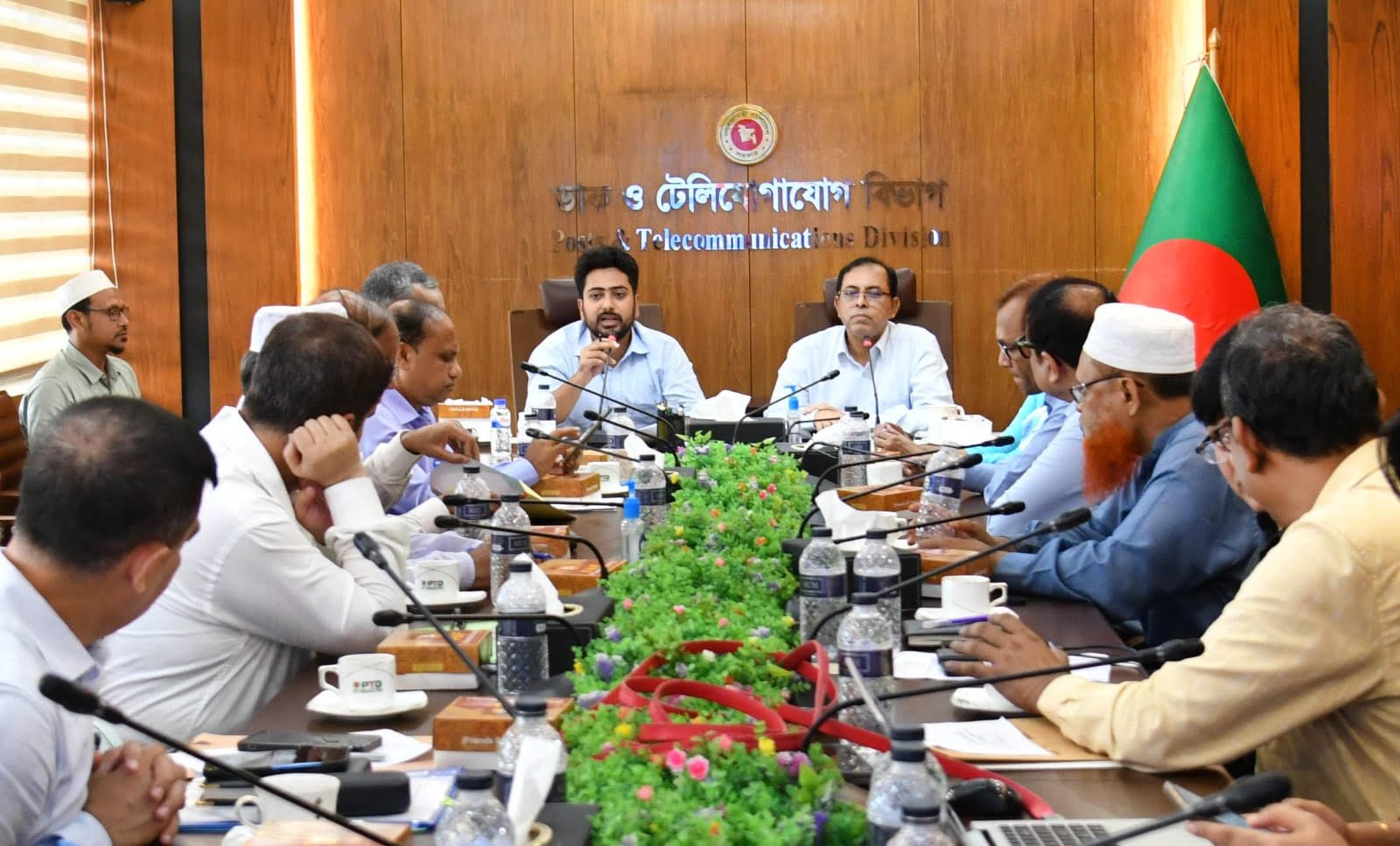
ICT Advisor Nahid Islam has said due to ‘irregularities’, Bangladesh has not realised the full benefits of the ‘Digital Bangladesh’ initiative despite a substantial investment of Tk 650 billion in the telecommunications and ICT sectors under the Awami League government.
Speaking at an ADP review meeting at the Posts and Telecommunication Division on Monday, Nahid criticised the execution of numerous costly projects under the ‘Digital Bangladesh’ banner which, according to him, failed to deliver their promised impact.
From fiscal year 2010-11 to 2024-25, the ICT Division implemented projects worth Tk 250 billion, while the Posts and Telecommunications Division accounted for projects totaling Tk 400 billion.
Despite these investments, Bangladesh scored a modest 62 out of 100 in the June 2024 edition of the ICT Development Index by the United Nations International Telecommunication Union, trailing behind nations such as Myanmar, Sri Lanka, the Maldives, Vietnam, and Bhutan.
Highlighting the country’s technological lag, Nahid referenced the May 2024 Ookla Speedtest Global Index, where Bangladesh ranked 109th out of 147 countries in internet speed, below Kenya.
Also, Bangladesh placed 108th in broadband internet performance, with India, Sri Lanka, Bhutan, Rwanda, and Ghana all performing better.
In the realm of artificial intelligence, the IMF’s June 2024 Artificial Intelligence Preparedness Index placed Bangladesh 113th, again behind India, Sri Lanka, Bhutan, Rwanda, and Ghana.
The Digital Quality of Life Index 2023 by cybersecurity firm Surfshark saw Bangladesh drop five notches to 82nd among 121 countries, with internet speed 5 percent below the global average.
Rankings in the Key Government Index, e-security, and internet purchasing capacity were similarly below par.
Nahid also pointed out that Bangladesh lags in freelancing, ranked 29th among the top 30 global destinations, as per an April 2024 report by US-based CEOWORLD magazine, trailing behind India and Pakistan.
These indicators, according to Nahid, reflect not just the failure to enjoy the full benefits of digital initiatives but also suggest pervasive irregularities in the sector.
He criticised the frequent delays and the need for repeated extensions in project timelines, calling for more sensible proposals regarding extensions.
Nahid emphasised that timely and proper project completion could significantly propel the nation’s progress in internet and telecommunication sectors, benefitting all Bangladeshis.
The meeting disclosed that nine projects are currently underway within the four offices of the Posts and Telecommunications Division for the fiscal year 2024-25, involving entities such as Bangladesh Telecommunications Company Limited, or BTCL, Teletalk Bangladesh Limited, the Directorate of Posts, and Bangladesh Submarine Cables PLC.
As of August 2024, national-level project progress for the fiscal year was reported at 1.02 percent, with the Posts and Telecommunications Division achieving a progress rate of 3.84 percent.

Bajloor Rashid Elected Chairman, Mezanur Rahman Elected Vice Chairman of Progressive Life Insurance

WB to provide $250m loan to modernise five public sector functions

A10 Networks Expands its Cybersecurity Portfolio with Acquisition of ThreatX Protect









